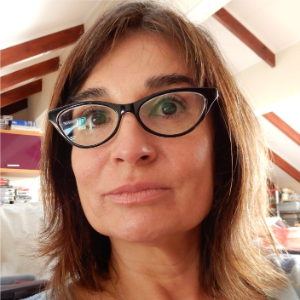Title : Chemical characterization and evaluation of biological activity of Microsorum scolopendria sp on a cellular damage model in vitro induced by opportunist pathogen
Abstract:
In Chile, plants or natural extracts are used for therapeutic purposes based on an ancestral knowledge, but without solid scientific basis as the chemical composition, biological activity or adverse effects. In Rapa Nui, preparations based on a Microsorum scolopendria (MS) or “Matu’a pua’a” are used by native people to treatment several diseases as gastric cancer, diabetes, muscle pain and other illness. In order to scientifically support its potential medicinal and sustainable use in Rapa Nui, the aim of this work is to determine the phenolic content of MS extracts, and evaluate their biological potential in a model of epithelial damage produced by opportunistic pathogens that cause serious skin conditions.
Methodology. The plant material of MS was collected from Rapa Nui and the metabolites were extracted from leaves and rhizomes using ethyl acetate, generating two extracts; leaves (HAE) and rhizome (RAE). Liquid chromatography coupled to negative and positive electrospray ionization (ESI) tandem mass spectrometry (MS/MS) was employed to the structural determination of phenolic compounds in the extracts from MS. The effect on cell viability was evaluate on Primary Human Dermal Fibroblasts HDFa cells by MTS assay, the antioxidant properties of MS extracts was evaluated by DPPH and ORAC assay and its protective -anti-reactive oxygen species (ROS) and antibacterial capacity was evaluated in a cellular model of human epithelial damage generated S. aureus and S. epidermis using HDFa cells. Additionally, we analysed the anti-inflammatory properties of extracts MS through spectrophotometric methods and cyclooxygenase 2 (COX-2) inhibition activity assay
Results. The results by RP-HPLC-MS/MS showed that MRS extract has approximately 1000 compounds. Leaves extracts contain a higher concentration of phenolic acids and the rhizome extracts a higher concentration of flavonoids and phenolic acids (13,55 ± 0,08 to 26,12 ± 0,04), respectively. Phenolic compound as Kaempferol, Luteolin and p- coumaric acids were abundant. Our findings suggest that MS have a good antioxidant, showing an EC50 for DPPH lower for the rhizome extract (12 µg/mL GAE) than leaves (20 µg/mL GAE) and compared to gallic acid (26, 32 µg/mL) and an ORAC value 63% more effective than the TROLOX control. The extracts are not cytotoxic on HDFa cells and have a good antioxidant capacity when the cells are pre-incubated for 24 hours with the extracts and subsequently are infected with S. epidermis, showing a 50 % decrease in ROS formation compared to the untreated cells. Furthermore, the rhizome extracts showed an 64 % of inhibition to COX-2 at a concentration of 3 µg/mL. Conclusion. Altogether, these results suggest the relevance to study the most important compounds of MS to establish their therapeutic potential and anti- inflammatory activity. Therefore, the continuation of this research can be supported by in silico studies of docking with COX-2 enzyme. Acknowledgements. FONDEF IT18I0015, Student grant ANID 21190657 and the Dirección de Investigación de la Vicerrectoría de Investigación y Estudios Avanzados, Pontificia Universidad Católica de Valparaíso, Chile (DIE 37.698-33).
Audience Take Away:
• To know about characterization of native and medicinal plants
• Potential therapeutic of compound presented in plants
• Study of properties of molecules in a cell model of damage
• New ideas about characterization of native plants, to collaborative with another researcher.
• Molecular docking
• Environmental monitoring and protection


